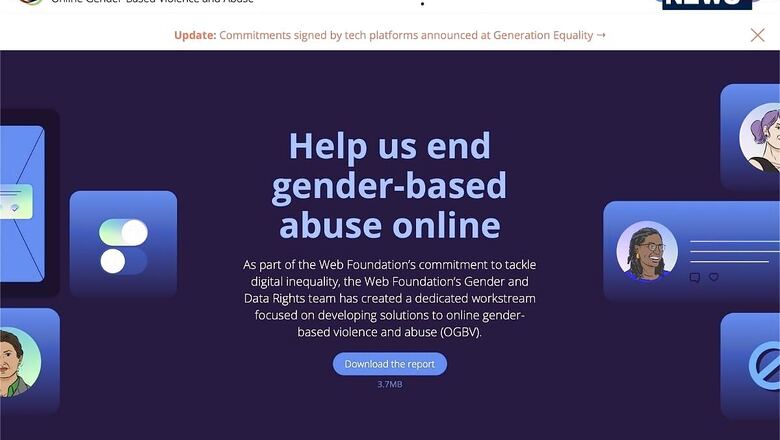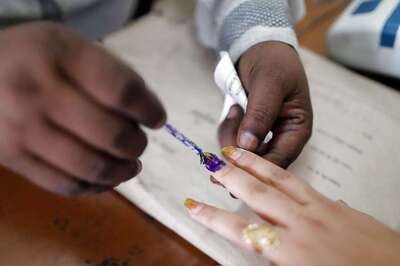
views
Facebook, Twitter, Google and TikTok have pledged to tackle online abuse and improve women’s safety on their platforms. This was announced at the UN Generation Equality Forum, and the tech giants will put measures in place to improve safety of women on their social media networks and platforms. This comes after an year of consultations with the World Wide Web Foundation (WWWF), during which it emerged that women would prefer greater control over who can see what they post and who can comment or reply to their posts. There is also the need for better and responsive content reporting mechanism, for abusive and threatening posts. The tech companies have committed to an eight-pronged approach to tackle the requirement for making women feel safer when online and on social media.
In the pledge that has been taken, Facebook, Twitter, Google and TikTok say that they’ll be providing more granular settings (example, who can see, share, comment or reply to posts), simple and accessible language throughout the app interface, providing easy navigation and access to safety tools and also have automated content monitoring measures in place to proactively reduce the amount of abuse they see. The reporting systems will also allow users to track and manage their previous abusive or harmful content reports, allow systems to have greater capacity to address context as well as language, clarify policy when a user is reporting abuse and put in place more options that women can use to access help and support if needed during the reporting process.
“For too long, women have been routinely harassed, attacked and subsequently silenced in online spaces. This is a huge threat to progress on gender equality,” says Azmina Dhrodia, Web Foundation Senior Policy Manager. The numbers tell the gravity of the situation. The Economist in their report ‘Measuring the prevalence of online violence against women’ said that 38% of all women on social media and online platforms reported being at the receiving end of abuse or threats of violence, and that increases to 45% for the younger millennial audience. As many as 63% women were also at targeted with stalking and hacking while 78% of those who took part in the survey say they are often not aware of the reporting measures in place.
Read all the Latest News, Breaking News and Coronavirus News here.


















Comments
0 comment